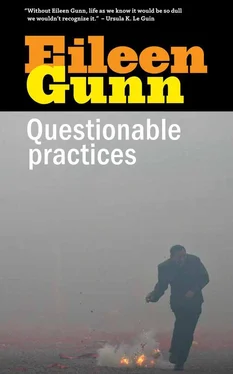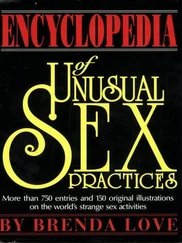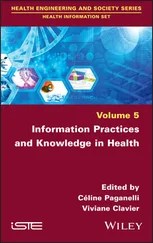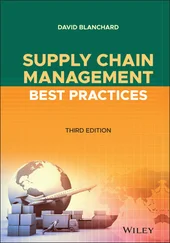Eileen Gunn - Questionable Practices
Здесь есть возможность читать онлайн «Eileen Gunn - Questionable Practices» весь текст электронной книги совершенно бесплатно (целиком полную версию без сокращений). В некоторых случаях можно слушать аудио, скачать через торрент в формате fb2 и присутствует краткое содержание. Год выпуска: 2014, Издательство: Small Beer Press, Жанр: Фантастика и фэнтези, на английском языке. Описание произведения, (предисловие) а так же отзывы посетителей доступны на портале библиотеки ЛибКат.
- Название:Questionable Practices
- Автор:
- Издательство:Small Beer Press
- Жанр:
- Год:2014
- ISBN:нет данных
- Рейтинг книги:5 / 5. Голосов: 1
-
Избранное:Добавить в избранное
- Отзывы:
-
Ваша оценка:
- 100
- 1
- 2
- 3
- 4
- 5
Questionable Practices: краткое содержание, описание и аннотация
Предлагаем к чтению аннотацию, описание, краткое содержание или предисловие (зависит от того, что написал сам автор книги «Questionable Practices»). Если вы не нашли необходимую информацию о книге — напишите в комментариях, мы постараемся отыскать её.
Eileen Gunn
Stable Strategies and Others
Questionable Practices — читать онлайн бесплатно полную книгу (весь текст) целиком
Ниже представлен текст книги, разбитый по страницам. Система сохранения места последней прочитанной страницы, позволяет с удобством читать онлайн бесплатно книгу «Questionable Practices», без необходимости каждый раз заново искать на чём Вы остановились. Поставьте закладку, и сможете в любой момент перейти на страницу, на которой закончили чтение.
Интервал:
Закладка:
The joke was on him, too. As he had approached the gun, he had heard it firing, and he yelled, “I’m a marine! Don’t shoot!” The Japs had turned the gun right on him. Maybe they didn’t speak English.
Ed raised his head to see where he was going. Watch your head, he thought. There was a marine nearby, prone in the grass. So still, so quiet, he hadn’t even known the guy was there. Only the guy’s eyes were moving, sweeping from left to right. His gun was pointed in front of him. Snipers? The guy tensed and fired right past him. The shooter didn’t speak or even move as Ed crawled past, following the almost-invisible trail.
He could use a beer, he thought again. Brown long-neck bottle. Cold, just pulled from a tub of ice. There probably wasn’t a tub of ice for 1500 miles. There were drops of water on the outside of the bottle, and it was starting to get cloudy from the humidity. His fingers left prints on the glass. He flipped the cap with his pocket knife. The bottle was so cold. He was about to take a gulp, but he needed to crawl just a little bit forward.
Ed was leaning on wooden crutches that supported him under his armpits. He was standing in a small, bright bedroom. Twin beds, yellow walls, white trim. A girl’s room. Sunlight streamed through the windows. There was a child lying in one of the beds, covered with a cheerful yellow blanket. He’d seen her before — she was about ten or eleven now, with her straight brown hair still in a dutch-boy cut. Her face was puffy, and she was breathing in intermittent gasps. Her skin was almost transparent, and he could see the veins blue beneath it. Katie was sitting on the bed next to her, holding her hand. The child’s gasps came more slowly. Katie’s face — it was Katie, really, he knew — was desolate. There was nothing he could do. There was no way to pull himself past this, or make Katie feel any better, or help the dying child. There was no cold drink that could reward him if he made it through, and there would be no cold drink to reward the little girl.
He was so confused. How had he ended up so far away from the jungle? Could he please get back to the jungle?
When you are injured suddenly, you may not immediately feel pain. You may have higher priorities than caring for your wound. You may need to get yourself out of the jungle, away from the people who are shooting.
This is not an unusual reaction. It is not even necessarily a human reaction. Dogs do it, horses do it, deer do it. You will have plenty of time to feel the pain later, when you’re having dinner with your family, perhaps, or working alone at the drawing board, late at night.
To feel pain, you need to pay attention to it. Pain can capture your attention, and once it’s captured, you may not be able to release it. It can hold you prisoner in this way, and force you to invent increasingly clever ways of escaping it.
You hear about people having a high threshold for pain or a low one, as if pain leaked into your body over some kind of baffle. But in fact, every healthy human being has about the same pain threshold, the point at which you notice a mildly unpleasant sensation — pressure, heat, prickling, whatever — that would be intolerable if it were stronger. What varies wildly from one person to the next is the point at which you would describe the sensation as actually painful, and the point at which the pain becomes intolerable.
Chronic pain doesn’t take you by surprise. You can plan for it, as you would a deadline, or a business trip. Will you accept the pain this time, or push it away? You can contain the pain, isolate it: this body has nothing to do with you. You can defer the pain, but it will seek you out later, and will not be denied.
What about the other pain, equally chronic? Will it keep that pain at bay if you never talk of your mother, dead of a stroke before she was forty, or your brother, shot down over the Pacific, or your daughter, stricken by a virulent infection? If you collect all their pictures and put them away, will that make the pain recede, or will pain take the place of pictures and become a way of keeping your memories alive?
He couldn’t tell if he was going uphill or down. There had been a ridge, that’s where the machine gun was, so he must be going downhill. He blacked out, it was like falling and falling, but when he came to, he was in the same place. He had thought his leg hurt before, but he was wrong. Now it really hurt. He pushed the pain aside. It had crept up on him, but he could squeeze it down to a pellet, a seed, and store it away. He inched forward on the trail.
Ed was in the kitchen of a house he had never been in, talking to a dark-haired, middle-aged woman dressed like a G. I., in dungarees and an undershirt. She wasn’t Katie, but she looked vaguely familiar, like an aunt he had never met. He looked at his hands — they were baggy and wrinkled and freckled with age. His body was, well, it wasn’t his body. He asked the woman, maybe she knew: “How did I get so old ?”
The woman shook her head and smiled wryly. “I don’t know, Dad. I ask myself the same question.”
He didn’t really need an explanation: he was getting the hang of this. He was old, and he was getting older.
Getting old was not the real question, though. The real question was why the pain didn’t recede with time. Why didn’t it fade, just as his dexterity and strength were slowly fading? Why did a glance at Katie’s desk, at the misshapen kid-made ashtray with the naïve sketch of a horse’s head, yield a stab of pain? Why did she keep it there, when the wound re-opened every time he looked at it? Why didn’t she put it away, as he had put away the photographs?
“Your mother was a beautiful young woman,” he said. “So lovely. So lovely. She let herself get old.”
Ed raised his head and peered through the leaves. There was a motionless marine lying on the ground ahead of him. The guy was wearing a combat pack, and he was soaked and dirty, and had been moving away from the front. He was facedown, his arms and legs too still. Dead, for sure. Between them ran a line of disturbed vegetation, bisected at an angle by the path that had been their goal.
Suddenly he didn’t feel as though he could go any further either. He could see the dark ahead, like a pit. It would be so easy to fall in.
When you’re injured, your body uses pain to keep you from moving the injured part. Parts of you that aren’t actually injured may hurt. What is going on here? The chemistry of those uninjured parts changes. The pain circuits in your spinal cord readjust to produce a widespread area of pain. It makes you want to hold still, doesn’t it? It feels better if you hold still, and it’s better for you, too. Damaged tissue — muscles, joints, and ligaments — needs time to recover, even after a minor injury. If you don’t hold still and let them heal, the membranes that cover the surfaces of these tissues become chronically inflamed, and death-dealing bacteria eagerly find their way to the very marrow of your bones. Pain protects you from this. Pain keeps you still and safe. Pain works.
Lung cancer starts out small, a few cells with a reproductive imperative. At that stage, it doesn’t hurt. Your body doesn’t even recognize that it is being colonized — these are your own cells — so it doesn’t fight back, it doesn’t warn you. You have no idea that the tumor is there, but as it grows, it will block small air passages. Your body will try to remove the dysfunctional parts of your lung via inflammation. Macrophages come to your aid, the diseased tissue swells and pushes against nerve endings, and that hurts. Much of your pain, when you have cancer, comes not from the cancer itself, but from your body’s reluctance to give your cancer the room it needs to grow.
Читать дальшеИнтервал:
Закладка:
Похожие книги на «Questionable Practices»
Представляем Вашему вниманию похожие книги на «Questionable Practices» списком для выбора. Мы отобрали схожую по названию и смыслу литературу в надежде предоставить читателям больше вариантов отыскать новые, интересные, ещё непрочитанные произведения.
Обсуждение, отзывы о книге «Questionable Practices» и просто собственные мнения читателей. Оставьте ваши комментарии, напишите, что Вы думаете о произведении, его смысле или главных героях. Укажите что конкретно понравилось, а что нет, и почему Вы так считаете.












